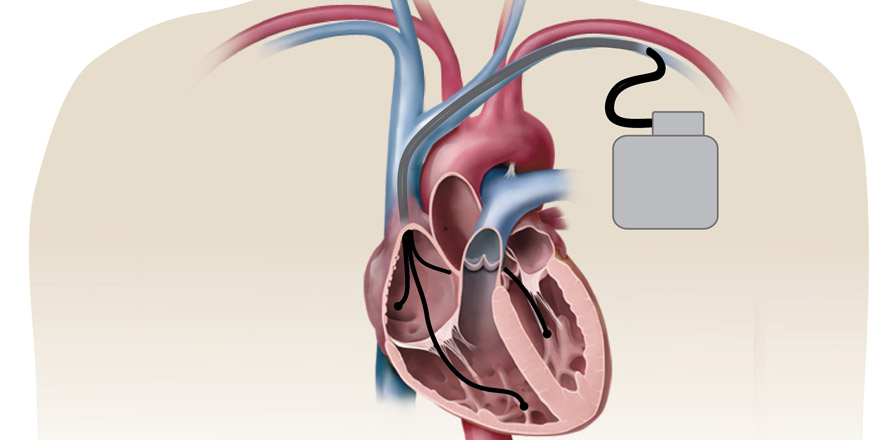
Roughly half a million Canadians live with heart failure. The condition is an increasingly common one that can seriously impact an individual’s quality of life. Even when appropriately treated, hospital admission and readmission rates are stubbornly high.
Traditionally, therapeutic implants called implantable cardioverter defibrillators (ICDs) had been reserved mainly for patients suffering serious heart failure. That started to change in 2010 when the RAFT trial was published in the New England Journal of Medicine.
At the time, RAFT was one of the largest, most extensive worldwide investigations into heart failure. Led by researchers at the Ottawa Heart Institute, the study showed conclusively that use of an ICD and cardiac resynchronization therapy (CRT) in patients with mild and moderate heart failure strengthens a fading heartbeat and reduces the risk of death.
CRT delivers electrical impulses to the heart that do not “restart” the heart’s electrical signalling like a standard ICD but stimulate and coordinate the heart to beat in sync.
The RAFT findings were quickly recognized as a major advance in patient care. The American Heart Association and the American Stroke Association named RAFT among the top 10 research advances in heart disease of 2010.
In 2012, the Canadian Institutes of Health Research and the Canadian Medical Association Journal gave the CIHR-CMAJ Top Achievements in Health Research Award to RAFT lead investigators George Wells, PhD, and former Heart Institute cardiologist Anthony Tang, MD.
Since its publication, the RAFT trial has led to changes in standard medical practice and improved outcomes for patients with mild to moderate heart failure worldwide.
Our 40th Anniversary Flashback series will continue throughout 2016.
Learn More

